- English
- Español
IACHR
Former IACHR Interns and Fellows
Julio Guity Guevara. Fellow, June 2002 - May 2003

Julio Guity Guevara, a Honduran attorney, obtained his master's degree in international law at American University's Washington College of Law, in Washington, D.C. He was the first indigenous lawyer to be selected to receive the Rómulo Gallegos Fellowship of the IACHR. "The Garifuna are a culturally differentiated people in Central America, the result of an intermingling of Afro-descendants and Carib and Arawak Indians who fled the Caribbean island of Saint Vincent," Guity Guevara explains about his origins. During his fellowship, he worked in the Office of the Rapporteur on the Rights of Indigenous Peoples, where he worked on evaluating cases and preparing admissibility reports and reports on the merits, and on litigation in cases before the Inter-American Court of Human Rights. He was also an active participant in activities related to the OAS Draft Declaration on the Rights of Indigenous Peoples, which he described as "one of my most memorable experiences as a member of the Garifuna ethnic group."
Anexa Alfred-Cunningham. Fellow, 2003 - 2004
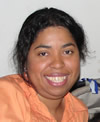
Anexa Alfred-Cunningham is a Nicaraguan citizen and a member of the Mizkitu indigenous people. She was a fellowship recipient in the Office of the Rapporteur on the Rights of Indigenous People for the 2003-2004 period, and she worked in the same office as a human rights specialist from September 2007 to November 2009. She is an attorney, having graduated from the Faculty of Legal Sciences of the Central American University (UCA) of Nicaragua. She obtained her master's degree in the Indigenous Peoples Law and Policy Program at the University of Arizona, in the United States, and did postgraduate studies in human rights, indigenous peoples, and international cooperation at the Carlos III University in Madrid, Spain, and at the International Training Centre of the International Labour Organization (ILO) in Turin, Italy. She has published research and specialized articles and given lectures in courses and seminars in different countries. Anexa Alfred-Cunningham has worked with local indigenous organizations in Central America in the follow-up and study of petitions and cases in the inter-American human rights system as well as in the United Nations' universal system for the protection of human rights. She was an adviser to the North Atlantic Autonomous Regional Government and Territorial Governments and Indigenous Communities in Nicaragua on processes involving the demarcation and titling of communal lands and the resolution of inter-community territorial conflicts. She is currently an adviser to Nicaragua's Deputy Minister of Foreign Affairs on Indigenous Affairs and a member of the Inter-Sectorial Committee for the Implementation of ILO Convention 169 on Indigenous and Tribal Peoples in Independent Countries. She has been nominated for the post of Human Rights Ombudsman in Nicaragua.
Ana Paula Barragán Gutiérrez. Intern, June - December 2005

My arrival at the IACHR was the result of a series of lovely coincidences for which I am grateful today. I came to the issue of human rights and specifically women’s rights while I was studying for my law degree at the Western Institute of Technology and Higher Education (ITESO) in Guadalajara, Mexico. From the beginning I was passionately interested in the subject, and I worked for a year as a volunteer at the Jalisco Women’s Institute. During my last year of studies, I was chosen to participate as a representative of my university in the Inter-American Human Rights Moot Court Competition organized every year by American University. It was through that competition that I learned more about the inter-American system for the protection of human rights and gained an in-depth understanding of the work the IACHR was doing. In May 2005, I traveled to Washington, D.C., to participate in the competition, and I had the opportunity to visit the offices of the IACHR and to meet the people there. At that moment it became very clear to me that I wanted to do an internship with them to learn firsthand about the work being done on human rights. Upon my return, I requested information to apply for an internship, and it so happened that they were looking for an intern for the Office of the Rapporteur on the Rights of Women. Suffice it to say that I didn’t hesitate one minute to apply and that I was very happy to be accepted to spend six months working with the Office of the Rapporteur. It was an excellent experience. I learned a lot more about the inter-American system and about the situation of women’s rights in the hemisphere, and I met highly capable and generous attorneys and interns who had the desire and will to dedicate their efforts to the work of promoting human rights. I understood how much more there is to be done and the day-to-day difficulties involved in this work. But above all, I learned that the rights of women go way beyond what I had understood up to that point. I realized that to understand these rights it is important to get to know both those women who are experiencing the type of reality no one should have to experience, as well as those who fight to make this work understood and to help people see that respect for our lives and our dignity exists because of the fact that we are persons and that we are women. And I realized that all this happens as we transform ourselves and transform everything around us. No change or transformation is simple or without conflicts, but as I learned from my very dear friend Rosa Celorio, whatever we do, however small it seems, is important because it is a step…. And that makes a difference.
I would very much recommend an internship with the Office of the Rapporteur or the IACHR in general. I think that to be able to choose what kind of impact we want to have on the world, it is important to first know what is out there and how it works. I think the IACHR is a good place to do that. To work with the Office of the Rapporteur on the Rights of Women, particularly for men and women who are committed to this issue, is an experience that is totally worthwhile.
Daniela Salazar. Fellow, August 2005
- June 2006
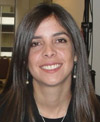
Daniela Salazar is an attorney from Ecuador who graduated from the University of San Francisco de Quito in December 2003. She worked in the resettlement program of the United Nations High Commissioner for Refugees (UNHCR) in Ecuador. She received a Fulbright Scholarship to study at Columbia University, where in May 2005 she earned her Master of Laws (LL.M.) degree. She was named a Harlan Fiske Stone Scholar and was awarded the Parker School Certificate for Achievement in Foreign and Comparative Law. After obtaining her master's degree, she received the "Rómulo Gallegos" Fellowship (2005-2006), and upon completing the fellowship, stayed on as a human rights specialist until 2009.
Since she returned to Ecuador in August 2009, she has worked as an independent consultant for the IACHR, Human Rights Watch, the Office of the United Nations High Commissioner for Human Rights, the University of Palermo's Center for the Study of Freedom of Expression, the International Red Cross, Agora Democrática, and the U.S. law firms of Conrad & Scherer and Patton Boggs. Daniela Salazar also works as a full-time professor at the University of San Francisco de Quito, where she specializes in the areas of law clinics, human rights, legal reasoning and argumentation, and comparative law.
Daniela Salazar wrote the following about her experience at the IACHR:
Working for the IACHR Executive Secretariat has been the most fulfilling and enriching work experience I have ever had. The work for the Commission not only enabled me to learn in-depth about how the inter-American human rights system works, and understand its pluses and limitations; it also prepared me as an attorney by teaching me to work with legal precision without diminishing the commitment to human rights. At the Commission, I gained a greater understanding of the different human rights challenges faced by the countries of the region, and how the IACHR can work with the States and civil society organizations to help improve the situation for victims of human rights violations in the hemisphere. Working in the IACHR Executive Secretariat exposed me to a wide range of topics, as I had to draft reports on very different countries and issues, including indigenous peoples, Afro-descendants, children, freedom of expression, and mental health, among many others. This experience prepared me to handle the gamut of human rights issues, which has allowed me to work as an independent consultant for various international organizations. My experience at the Commission has also been vital to the work I do now at the Law Clinic at the University of San Francisco de Quito, where we litigate various cases of public interest in national and international courts. In addition, the dedication and tireless effort the attorneys at the IACHR Executive Secretariat and the members of the Commission devote in order to guarantee human rights in the region serves as an example that will leave a lasting mark on my career.
Belissa Guerrero Rivas - Fellow, 2007
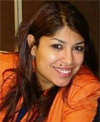
A Salvadoran attorney and graduate of the "José Simón Cañas" Central American University (2004), Belissa Guerrero Rivas earned a graduate degree in "Human Rights and Women" at the University of Chile (2005-2006). From 2004 to 2006, she worked with several national and international nongovernmental organizations in El Salvador on issues related to economic, social, and cultural rights; the International Criminal Court; the inter-American system for the protection of human rights; and the rights of women, to name a few. She also worked for the Office of the Human Rights Ombudsman (PPDH). In 2007, she had a fellowship with the IACHR Unit for Human Rights Defenders and later worked as a human rights specialist for the same institution (2008-2009). In 2009 and 2010, she worked for the Office of the President of the Republic in El Salvador on issues having to do with social inclusion and the human rights of children and adolescents. She has published articles on human rights and the constitutionality in El Salvador of the International Criminal Court. She is currently pursuing a master's degree in human rights practices at the University of Gothenburg (Sweden), Roehampton University (U.K.), and the University of Tromsø (Norway).
Belissa Guerrero Rivas had this to say about her experience as a fellowship recipient:
Having a fellowship with the IACHR Unit for Human Rights Defenders was a gratifying experience both professionally and personally. On the one hand, it allowed me to understand intimately how the inter-American system works, with all its virtues and faults; at the same time, working directly with human rights defenders from around the Americas added a very human element to the fellowship. During the year of my fellowship, I worked on cases, individual petitions, and precautionary measures, most of them having to do with situations involving risk: threats, attacks, and obstacles faced by human rights defenders in the hemisphere, as they work to build societies that are more just and equitable.
I have no doubt whatsoever that the Unit for Human Rights Defenders is essential for the functioning of the inter-American system—not just because of the impetus it gives to the cases related to human rights defenders, but also because without the work of human rights defenders, very few cases and situations involving human rights violations would come to the attention of the inter-American system. In my judgment, this makes human rights defenders vital actors in terms of the development and sustainability of the inter-American system for the protection of human rights.
Fanny Gómez-Lugo. Fellow, July 2007 - June 2008
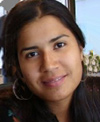
Fanny Gómez-Lugo is a Venezuelan attorney who graduated from the Andres Bello Catholic University (UCAB) in 2003. She obtained her master’s in law (LLM) with a concentration in international law from McGill University in Montreal, Canada (2006). She received a fellowship to the University of Chile to pursue postgraduate studies in “Human Rights and Women: Theory and Practice” (2008). Since September 2008, she has worked at the IACHR as a human rights specialist. She currently participates in the Women’s Law and Public Policy Fellowship Program at the Georgetown University Law Center (2009-2010). Previously, she was an independent consultant for Human Rights Watch and worked with the Canadian HIV/AIDS Legal Network in drafting model legislation on violence and discrimination against women in Sub-Saharan Africa. She also worked as a research assistant on Canadian and international mechanisms to protect refugees and victims of human trafficking, especially women and children, for McGill’s University’s School of Social Work. Since 2008, she has been invited to give classes and lectures on women’s human rights, sexual and reproductive rights, and the inter-American human rights system at the Georgetown University Law Center and the Bloomberg School of Public Health at Johns Hopkins University.
Fanny Gómez-Lugo had this to say about her experience in the Office of the Rapporteur:
My experience in the IACHR Office of the Rapporteur on the Rights of Women was absolutely amazing, in large part because I was part of an excellent team, made up of women attorneys who were highly dedicated to their work and had a great professional ethic. I learned a lot during my fellowship and my consultancy, particularly about the principal challenges women face to be able to exercise their human rights in the region and the tools the inter-American system offers to address these challenges. My work with the Office of the Rapporteur enabled me to delve into issues involving violence and discrimination against women in most of the countries of the region, as well as to support the preparation of draft reports on individual petitions and cases related to the State’s duty to act with due diligence to prevent, investigate, and punish acts of violence against women. Besides allowing me to undergo profound professional development, the work with the Office of the Rapporteur was extremely gratifying at the personal level, as I felt that my work helped to further the protection of women’s rights in the region and made it possible to respond to petitioners or victims who lodged petitions with the system in search of justice. I highly recommend the fellowship for any attorney in the region who feels a sense of commitment to this subject.
Sofía Galván Puente. "Rómulo Gallegos" Fellow, September 2007-August 2008
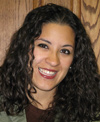 Sofía Galván is currently Director for Mexico and Central America for Disability Rights International, an international organization that defends and promotes the rights of people with disabilities. She has a law degree from the National Autonomous University of Mexico and an LL.M. in international human rights law from the University of Notre Dame, where she graduated magna cum laude.
Sofía Galván is currently Director for Mexico and Central America for Disability Rights International, an international organization that defends and promotes the rights of people with disabilities. She has a law degree from the National Autonomous University of Mexico and an LL.M. in international human rights law from the University of Notre Dame, where she graduated magna cum laude.
Sofía Galván has worked at both institutions in the inter-American human rights system: the Inter-American Commission on Human Rights and the Inter-American Court of Human Rights. She also did a fellowship with the American Bar Association Rule of Law Initiative and served as an OAS electoral observer for the 2007 elections in Guatemala.
She has worked on human rights issues from a number of different perspectives: international agencies, nongovernmental organizations, government, academia, and human rights commissions. She has earned national and international recognitions; has several legal publications to her name in Mexico and other countries; and has spoken at conferences in the United States and several countries in Latin America.
Sofía Galván has this to say about her experience at the IACHR:
"Being a fellowship recipient at the IACHR has been one of the best professional and personal experiences of my life. I had the opportunity to learn firsthand about a type of work that, without any doubt, has a major impact in the region when it comes to defending the human rights of hundreds of people who have not found justice in their countries' legal systems. It was also an honor to work with the staff members of the Executive Secretariat, who are characterized by their professionalism and commitment to human rights. In addition, I am convinced that having been at the IACHR opened important doors for me in my professional development. On a personal level, at the Executive Secretariat I had the opportunity to make close friends, who continue to be an important part of my life today."
Paulina Zamorano Valenzuela. Intern, January 8 - March 11, 2008
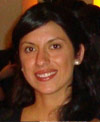
My name is Paulina Zamorano Valenzuela, and I am Chilean and an attorney by profession. I currently work as a researcher of the Human Rights Observatory Project and am pursuing postgraduate studies in “Human Rights and Women” at the University of Chile.
I have always been interested in human rights, in their protection and promotion, and particularly in the rights of women. That motivated me to apply through my university to an internship with the Inter-American Commission on Human Rights. The experience was extremely enriching, as I was able to work on cases in the region, working with the Office of the Rapporteur in developing reports for initiating petitions and friendly settlements, among other tasks. I was also able to be present for the 131st regular period of sessions and to participate in human rights courses. The internship helped me understand how the IACHR works, and I was able to acquire a practical knowledge that will serve me throughout my life. It was a unique opportunity that gave me great professional and personal satisfaction. I must also emphasize the excellent work environment at the Office of the Rapporteur and the IACHR in general; the human qualities of the people there are exceptional, and the attorneys are always available to help and teach very patiently. I also made some great friends and still keep in touch with them today.
I would absolutely recommend an internship with the Office of the Rapporteur on the Rights of Women, most of all for those who have a strong interest in this field. The experience of working on cases that you learn about only by reading case law is very exciting, and the chance to work in such a pleasant environment makes the experience even more unforgettable.
Zulma I. Villa Vílchez. Intern, April - June 2009
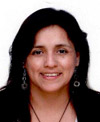
My name is Zulma I. Villa Vílchez, and I am a Peruvian lawyer and member of the International Institute of Law and Society, or IIDS. I work as a visiting professor in the doctoral program at the private San Martín de Porres University, and I am currently doing a fellowship in Comparative and Federal Indian Law at the University of Oklahoma, in the United States.
It is important to me to be able to share the experience I had as an intern with the Office of the Rapporteur on the Rights of Indigenous Peoples of the Inter-American Commission on Human Rights, from April to June of 2009. This experience was very important in enriching my work as a human rights defender, researcher, and university professor. It helped me to become aware of the problems that indigenous peoples in our region are facing; understand the criteria that the Commission's highly qualified professionals apply in promoting and guaranteeing the rights of indigenous peoples; and learn about the difficulties they face in doing their jobs. This vital work the Commission is doing so that States can guarantee and protect rights of indigenous peoples is due to the fact, among other things, that it has professionals who are well-educated, sensitive, and committed to indigenous issues, but above all, who are willing to share their knowledge.
I am very happy to write these lines because this gives me the opportunity to inspire students and professionals from the region to pursue an internship with the Inter-American Commission on Human Rights. I firmly believe that our countries need professionals who are not only academically qualified to work for human rights, but who are also committed and sensitive to outside suffering. Every case that arrives at the IACHR, whether it is an individual or collective case, encompasses stories of deep pain but also of hope, this hope for justice that was denied to people many times in their countries and that it is now up to the professionals at the Commission to take on. And one can add his or her grain of sand to this difficult task.
Isidora Rojas Fermandois. Intern, Winter-Spring 2009
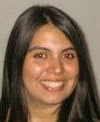
My name is Isidora Rojas Fermandois, and I was an intern in the IACHR Office of the Rapporteur on the Rights of Women during the winter-spring period of 2009. I am a law student in my country, Chile. The reason I was interested in participating in the IACHR, and specifically in the Office of the Rapporteur on the Rights of Women, was the strong commitment I have to human rights in general, as well as to the necessary empowerment of Latin American women in particular. Through the cases I worked on, particularly the research into the civil and political rights of women in our region, I believe my time with the Office of the Rapporteur helped me to gain an in-depth understanding of the processes that thousands of women are going through today in Latin America.
In addition this specific task, it was an honor and a privilege to participate actively in the IACHR period of sessions—both on an academic level, as attorneys, the parties, and the Commissioners put into practice knowledge that I had only been able to learn about in books, as well as on a human level. To be present with the authorities of the States Parties and the victims made a big impression on me, and that moment made it worthwhile to have put so much effort into deciding to participate in an application process to which hundreds apply every year. The hard work and dedication it took to be accepted bore fruit, as I was able to participate in a process that changes the lives of ordinary people like me and at the same time indicates a trend toward greater human rights protection in general.
Besides all of that, the relationship with the other interns could not have been better. We had the opportunity to participate in the MOAS, which was a unique and very interesting and enriching experience. The attorneys and other staff members who work at the IACHR are really like a big family; everyone is very open and collaborative, willing to help the interns with any problem and open to dialogue and new ideas. The exchange of ideas and opinions is practically obligatory, which is reassuring and at the same time inspires you to innovate and improve.
I would tell anyone who would like to participate that they should give it a try, that it is a unique experience, and that the issues covered and the people you meet are incredible. If you really have a passion for human rights and a desire to help the women of our region, there will never be enough hands to do this work. We can all contribute to bring about more equality and rights for ourselves as women.
Lisa (Cowan) Reinsberg. Fellow, 2009-2010
 Lisa (Cowan) Reinsberg, a U.S. lawyer, was a fellow at the IACHR for the period 2009-2010. Previously, she carried out a ten-month research project on the use of international litigation by human rights NGOs in Latin America, through a Fulbright fellowship (2008-2009). Earlier, she represented migrants in defensive and affirmative proceedings at the Cabrini Center for Immigrant Legal Assistance of Catholic Charities (2008). She obtained her Bachelor of Arts in political science and communications from the University of California – San Diego (2004) and her Juris Doctor at Georgetown University Law Center (2008). As a law student, Lisa completed various internships in human rights, civil rights and migration in the United States and Europe. She is a member of the State Bar of California.
Lisa (Cowan) Reinsberg, a U.S. lawyer, was a fellow at the IACHR for the period 2009-2010. Previously, she carried out a ten-month research project on the use of international litigation by human rights NGOs in Latin America, through a Fulbright fellowship (2008-2009). Earlier, she represented migrants in defensive and affirmative proceedings at the Cabrini Center for Immigrant Legal Assistance of Catholic Charities (2008). She obtained her Bachelor of Arts in political science and communications from the University of California – San Diego (2004) and her Juris Doctor at Georgetown University Law Center (2008). As a law student, Lisa completed various internships in human rights, civil rights and migration in the United States and Europe. She is a member of the State Bar of California.
Immediately after her Romulo Gallegos fellowship, Lisa founded a non-profit organization dedicated to the understanding and effective use of international law as a tool for the protection of human rights throughout the world. She is current executive director at this organization, International Justice Resource Center, which facilitates victims, activists and attorneys' use of international law and international human rights mechanisms through litigation support, trainings, and a variety of resources and online tools.
Lisa Reinsberg said this about her experience at the Commission:
It was an honor to be a member of the Registry Group at the IACHR for one year. I learned so much about the different aspects of the Commission's work, the users of the Inter-American System, and the doctrine of the Commission and its counterparts. My work at the Registry allowed me to examine several topics and situations of high importance for the inhabitants and countries in the region. It enabled me to conduct complex legal research, communicate with the victims and their family members, and to be part of an excellent and very professional team. My experience at the IACHR strengthened my dedication to international human rights law and to the persons it protects.
Alma Luz Beltrán y Puga. Fellow, June 2009 - May 2010
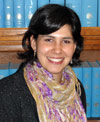 Alma
Luz Beltrán y Puga is a Mexican attorney who graduated from the Autonomous Technological Institute of Mexico (ITAM). She earned her master’s in law (LLM) from Columbia University. She is currently on a joint fellowship from the Center for Human Rights at Diego Portales University (Chile) and the Human Rights Institute at Columbia Law School (New York), to do research on gender and human rights issues. She obtained the Rómulo Gallegos Fellowship (2009-2010) to assist the IACHR Office of the Rapporteur on the Rights of Women. She has been a consultant in the United Nations Office of the High Commissioner for Human Rights in Mexico (OACNUDH), to advance international human rights standards in Mexico’s Supreme Court of Justice. She has also worked as an attorney for the Information Group on Reproductive Choice (GIRE) in the defense of women’s sexual and reproductive rights, and as a judicial official at the Supreme Court of Justice of the Nation in Mexico.
Alma
Luz Beltrán y Puga is a Mexican attorney who graduated from the Autonomous Technological Institute of Mexico (ITAM). She earned her master’s in law (LLM) from Columbia University. She is currently on a joint fellowship from the Center for Human Rights at Diego Portales University (Chile) and the Human Rights Institute at Columbia Law School (New York), to do research on gender and human rights issues. She obtained the Rómulo Gallegos Fellowship (2009-2010) to assist the IACHR Office of the Rapporteur on the Rights of Women. She has been a consultant in the United Nations Office of the High Commissioner for Human Rights in Mexico (OACNUDH), to advance international human rights standards in Mexico’s Supreme Court of Justice. She has also worked as an attorney for the Information Group on Reproductive Choice (GIRE) in the defense of women’s sexual and reproductive rights, and as a judicial official at the Supreme Court of Justice of the Nation in Mexico.
Alma Luz Beltrán y Puga had this to say about her experience in the Office of the Rapporteur:
Within the noble human rights edifice that is the Inter-American Commission, the Office of the Rapporteur on the Rights of Women is critically important for advancing the rights of women in the region. During the year of my fellowship with the Office of the Rapporteur, I was able to immerse myself in the incredibly versatile work it does to promote and guarantee these rights. I did work on thematic reports, especially research and analysis involving the progress made and challenges remaining for women to achieve equality in the political sphere. It was also gratifying for me to work on country reports, such as the one following up on the Commission’s recommendations regarding the situation of women facing violence and discrimination as a result of the armed conflict in Colombia. I also had the opportunity to observe the challenges that women face to access justice in their countries, through the analysis of petitions and cases of women who experience sexual violence, domestic violence, and discrimination in the workplace and in reproductive health. These tasks, such as providing daily assistance to the Office of the Rapporteur’s work during the IACHR periods of sessions, helped me to understand how the Inter-American Commission works and to appreciate the tireless efforts of everyone there. The great spirit of teamwork and professionalism of those who work there—especially the women attorneys of the Office of the Rapporteur, with whom I shared ideas, personal experiences, strolls through the city, and the vision of creating a more equal world—made my time with the Commission extremely enjoyable. I hope that other young attorneys are fortunate enough to receive fellowships with the Office of the Rapporteur, as it is an incomparable experience.
Pascual Cortés Carrasco. Intern, September- December 2010
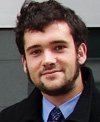
Pascual Cortés studies law at the University of Chile. In 2010, he was an exchange student in the International Legal Studies Program at American University's Washington College of Law. That same year, he worked as a member of the organizing team for the 15th Annual Inter-American Human Rights Moot Court Competition, through the university's Academy on Human Rights and Humanitarian Law. Since the beginning of 2010, he has been a reporter for the Oxford Reports on International Law, also through the Academy on Human Rights and Humanitarian Law at American University. Pascual Cortés did his internship with the IACHR from September to December of 2010.
Pascual Cortés said this about his experience at the Commission:
The internship at the IACHR was an extremely valuable experience for me. It gave me an opportunity, as a law student, to determine the professional path I would like to follow in the future, and was a source of motivation for me to continue with my studies. Working with the IACHR team, I not only learned a lot, but was also able to put into practice the knowledge I had acquired up until then in my career. I am very grateful for having been able, in some way, to help advance the protection of human rights in the region, alongside a group of individuals who were admirably professional and tremendously welcoming.
Branislav Marelic Rokov. Intern, September - December 2010
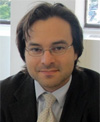 Branislav Marelic Rokov graduated with a law degree from the University of Chile School of Law. He is an administrative law assistant and he is part of the editorial team of the Bulletin on Case Law of the Inter-American Court of Human Rights, edited by the university's Human Rights Center. Previously he worked at that school 's Center for Environmental Law and at the Clinic on Environmental Law and Conflict Resolution.
Through an exchange program, he pursued political science studies at the
University of California.
Branislav Marelic Rokov graduated with a law degree from the University of Chile School of Law. He is an administrative law assistant and he is part of the editorial team of the Bulletin on Case Law of the Inter-American Court of Human Rights, edited by the university's Human Rights Center. Previously he worked at that school 's Center for Environmental Law and at the Clinic on Environmental Law and Conflict Resolution.
Through an exchange program, he pursued political science studies at the
University of California.
Branislav Marelic Rokov wrote the following about his experience at the IACHR:
The opportunity I had to work at the Executive Secretariat, to experience this protection agency day to day, greatly changed my perspective on human rights. To be able to work on a team of such dedicated and knowledgeable people, both attorneys and administrative staff, was enriching. What I learned went beyond what can be absorbed in a university setting, because it covered other aspects that are equally important for professional development in the inter-American human rights system—such as, for example, understanding and respecting other cultures, which is so difficult to explain and can only be learned through experience.
I have nothing but appreciation for the Mesoamerican Section, where I worked, for the team's tremendous personal and professional qualities and unwavering dedication. They had confidence in my work, which translated into challenging assignments.
I would also like to stress that the internship gave me the opportunity to meet other interns and fellowship recipients from around the Americas who, like me, were getting to know the inter-American system from within. Quite apart from whatever knowledge we had when we arrived at the Commission, in the end—and after many adventures—we all came away the better for our experience.
Beyond any paper or theory, dealing directly with the reality in each country or the particular details of a case leads one to reaffirm a commitment to human rights. Because of that, my internship with the Commission is one of the most important experiences I have had in my training at the professional and, most of all, the personal level.

